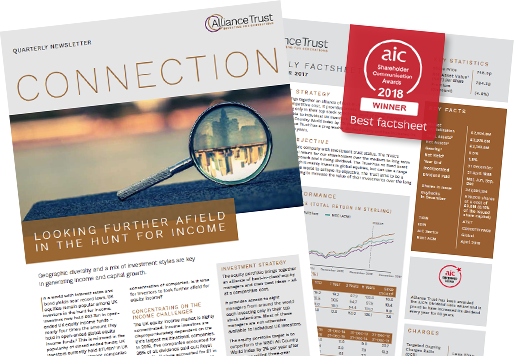The investment opportunity in US healthcare
Healthcare, and more importantly how it should be paid for, is one of the most contentious issues in the US. The sector is a political battleground, and has proved a key divisive issue between the Democratic and Republican parties, with voices on all sides demanding change.
Top-level rhetoric from President Donald Trump and the Democrats with their eyes on the 2020 election, and the policies that could emerge as a result, look set to bring real, sweeping changes to the sector.
Trump has his sights set on dismantling Barack Obama’s Affordable Care Act, but also on cutting the cost of drugs – a move that is already hitting companies in the pharmaceutical space and is also the driving force behind widespread changes further down the supply chain.
Government rhetoric and policy is the issue likely to affect the prospects of companies across the health sector in the US over the next few years. Some companies have already shown themselves to be adept at preparing for these changes, and we expect to be able to continue to find strong investment opportunities in the sector, given the growth expected over the next decade.
A forecast from the Centers for Medicare & Medicaid Services, has projected that national health spending in the US is set to grow at an average rate of 5.5% a year until 2027, and is expected to reach an annual total of $6trn by 2027. The health sector’s share of US GDP is expected to rise from 17.9% (2017) to 19.4% by 2027.
Over the long term, the healthcare sector looks set for solid growth, and 2019 itself looks set to be an interesting year in the space. At Veritas, we have primarily focused on the value opportunities available in companies further down the supply chain than the pharmaceutical companies themselves.
While government intervention will undoubtedly have some effect on these supply-chain companies, we believe the problems they currently face will be resolved over the course of the next 12–24 months. They should be better protected from potential policy reforms because of the vital role they play in the provision of medicines, and we expect them to play a fundamental role in helping provide solutions to the problems in the wider US healthcare system.
As investors, these companies currently appear extremely cheap, offering a prime opportunity to enter the space. With the number of mergers and acquisitions in the space also high, we are confident that these companies will soon become pillars of the sector and that on a two or three-year time horizon, these companies will perform well from here.
Of the companies in the sector, we have spotted two we believe to be particularly promising, CVS and Cigna. CVS Health Corporation is a large US retail pharmacy and healthcare company, with revenues of almost $185bn. The business has recently acquired a large insurance company, and has now become a vertically integrated firm that has control over whole sections of the supply chain, from insuring clients to managing the cost of medicines and supplying drugs to patients.
As one of the largest pharmacy chains in the US, it has developed a system where the pharmacy can become the first port of call for patients. Rather than going to A&E departments or making a GP appointment, patients have the option of getting good-quality information and care at the pharmacy, offering huge cost savings for the healthcare system as a whole. Its share price has struggled recently on the back of what many saw as disappointing earnings at the end of 2018, but over time we think its strategy should prove to be very successful.
Another big player in the US healthcare sector is Cigna, an insurer. It offers medical and dental insurance alongside disability, life and accident insurance. It again has become vertically integrated and has acquired a purchasing benefits manager – a firm that manages the costs of paying for prescription medicines. It now has input into various strands of the supply chain, maintaining a position at the forefront of both insuring patients and acquiring medicines. It targets long-term growth of 10%–13%, and remains very attractively valued.
We believe US healthcare will eventually be dominated by just four or five very large vertically integrated companies, which will dominate almost every stage of the sector from the supply chain to delivery of the healthcare services. CVS and Cigna look well placed to become two of these healthcare giants.
The volatility thrown up by ongoing political battles and policy upheaval, should continue to highlight solid opportunities for investors. We believe the US healthcare sector is a dynamic one, that is supported by similar demographic trends seen across much of the rest of the world, in which an ageing population increasingly seeks care over the coming decades. For an investor, seeking out and buying companies in the right space, at the right time, could reap rewards.
Reference to specific securities should not be construed as a recommendation to buy or sell these securities and is included for the purposes of illustration only.






